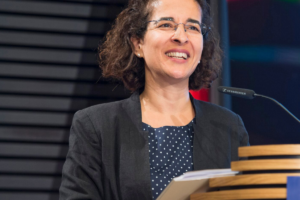By: Shahrzad Sabet
Abstract: In the Middle East, as in many parts of the world, globalization arouses deep ambivalence—and for good reason. Globalization carries both constructive and destructive forces, yielding a debate characterized by conflicting interpretations and persistent controversy. Two dimensions of controversy have been especially salient in the globalization discourse of the Middle East. The first represents the apparent tension between material progress, on the one hand, and spiritual or ethical values, on the other; the second reflects the perceived dichotomy between unity and diversity in an interdependent global context. I consider each of these tensions, in turn, unpacking some of the concepts and assumptions that underpin them, and offering reflections on the validity and usefulness of those underlying assumptions. The essay suggests that the tensions and contradictions associated with globalization are not inherent features of an integrated world, but rather, reflect the entrenched ideas and practices on which globalization, in its current form, is built.




